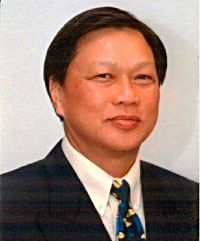In this new, occasional series titled JUST ASK, we invite readers to send in questions on stock investing, and personal finance. We will ask an expert to provide answers. To kick off the series, below is a question from a reader and a response from Leong Sze Hian, the President of the Society of Financial Service Professionals. We had follow up questions for Sze Hian, who has a remarkable string of credentials (please see bottom of the article).
Q I am conservative with my investments. What would you suggest that I park my money in if all I want is 5% return a year, more or less assured?
Leong Sze Hian: The problem is that sometimes, the greatest risk may be not taking any risk. Just look at what happened with structured products like the Minibonds saga - most perceived them as low risk!
If you "want 5% return a year, more or less assured", the general consensus is that Government bonds carry the lowest risk - so, if one puts all his or her money in diffierent countries' Government bonds, the returns over the years will vary depending on interest rate movements and the price of the Government bonds.
Having said that, even Government bonds can and have seen defaults. The yield on the longest tenure Singapore Government bonds is now about 3+% only, with the 10-year Government bond at about 2.5%.
Hence, in my view, the only way, to manage risk and have a high probability of getting 5%, is to have a globally diversified portfolio comprising approximately 40% equities, 10% commodities (natural resources), 10% real estate and 40% bonds.
NextInsight: How can people go about achieving a globally diversified portfolio comprising approximately 40% equities, 10% commodities (natural resources), 10% real estate and 40% bonds?
Leong Sze Hian: For example, you can structure a portfolio of about 10 investment funds, with as little as $10,000. One may also like to make regular top-ups to the portfolio.
NextInsight: What is the longest SG Govt bond that yields 3%?
NextInsight: Typically people view Reits as a source of steady dividend payout of at least 5%. Of course, the last 12 months have been terrible - but under normal circumstances, wld Reits be a good way to try to earn 5% with a high degree of certainty?
Leong Sze Hian: Although REITs are linked to the property sector, being listed on the stock exchange, they have historically been highly correlated with the stock market as well. Over the last 12 months or so, some REITs prices fell by as much as 70 per cent. Also, many REITs had rights issues during the financial crisis, which was a problem for shareholders who may not have funds to take up the rights. As REITs' prices fell, dividend yields went up to an average of more than 10 per cent.
This led to some investors buying on the basis of focusing on the high yield. One should not forget that like everything else, there is no such thing as a free lunch in investing - such as high yield and price stability!
|
Email your questions to
Leong Sze Hian has been a Wharton Fellow and alumnus of Harvard University, authored 4 books, quoted over 1,000 times in the media, and invited to speak more than 100 times in about 20 countries on 5 continents.
He has served as Honorary Consul of Jamaica, Chairman of the Institute of Administrative Management, the UNESCO Leadership Chair Council and founding Advisor to the Financial Planning Association of Brunei and Indonesia.
He has 3 Masters degrees in Financial Planning & Financial Services, 2 Bachelor degrees in Economics & Insurance, and 13 professional qualifications.







